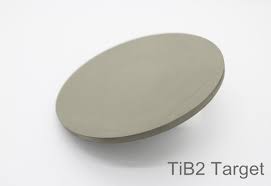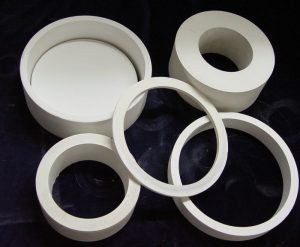- Alumina
- Boron Nitride
- Zirconia
- Other Ceramics
- Applications
- Contact

Titanium diboride for hot-pressed composite materials with outstanding electrical conductivity.
These properties qualified titanium diboride for use in hot-pressed composite materials with exceptional electrical conductivity. Examples include evaporation boats for continuous aluminum metallization, crucible material for non-ferrous metals, ceramic shell molds used in aluminum production and hot-pressed armor plates. Probably the most important metal boride from a technical perspective is titanium diboride.

A transition metal boride, it features exceptional hardness, a high melting point, and outstanding electrical conductivity.
Titanium diboride is very hard. And the best: Because, unlike other coatings, TiB2 does not react with aluminum, no metal particles adhere to your tools. This ensures trouble-free machining.
As a ceramic material, titanium diboride has to be compacted at high temperatures of between 1 700 and 2 000 °C. That is why we use hot pressing techniques to produce our targets and achieve at least 98 % of the theoretical density.

Hard material titanium diboride coatings are applied to the tool using the magnetron sputtering process. For this type of application, Stanford Advanced Materials can supply pure ceramic TiB2 sputtering targets and bonded targets on molybdenum or copper backplates. These backplates make our bonded targets stable, breakage-resistant and easy to use. We generally use indium as our solder material.
For more information, please visit: http://www.samaterials.com/micro-nano-materials/232-micro-titanium-diboride.html
Tags: ceramic material, TiB2 sputtering targets, Titanium diboride, titanium diboride coatings